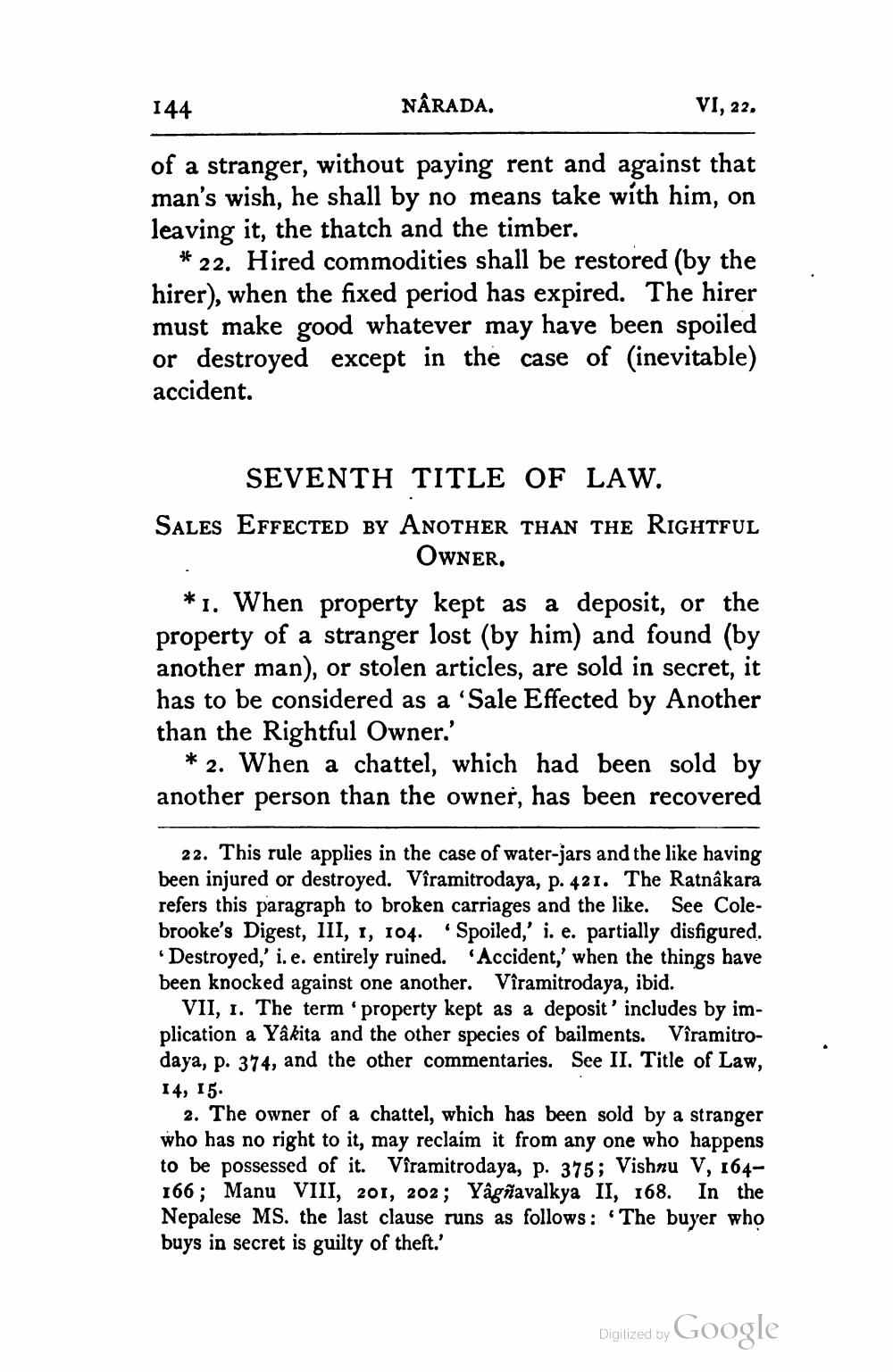________________
144
NARADA.
VI, 22,
of a stranger, without paying rent and against that man's wish, he shall by no means take with him, on leaving it, the thatch and the timber.
*22. Hired commodities shall be restored (by the hirer), when the fixed period has expired. The hirer must make good whatever may have been spoiled or destroyed except in the case of (inevitable) accident.
SEVENTH TITLE OF LAW. SALES EFFECTED BY ANOTHER THAN THE RIGHTFUL
OWNER. *1. When property kept as a deposit, or the property of a stranger lost (by him) and found (by another man), or stolen articles, are sold in secret, it has to be considered as a 'Sale Effected by Another than the Rightful Owner.'
* 2. When a chattel, which had been sold by another person than the owner, has been recovered
22. This rule applies in the case of water-jars and the like having been injured or destroyed. Vîramitrodaya, p. 421. The Ratnakara refers this paragraph to broken carriages and the like. See Colebrooke's Digest, III, 1, 104. 'Spoiled,' i. e. partially disfigured. • Destroyed,' i.e. entirely ruined. Accident,' when the things have been knocked against one another. Vîramitrodaya, ibid.
VII, 1. The term property kept as a deposit' includes by implication a Yakita and the other species of bailments. Vîramitrodaya, p. 374, and the other commentaries. See II. Title of Law. 14, 15.
2. The owner of a chattel, which has been sold by a stranger who has no right to it, may reclaim it from any one who happens to be possessed of it. Vîramitrodaya, p. 375; Vishnu V, 164166; Manu VIII, 201, 202; Yågñavalkya II, 168. In the Nepalese MS. the last clause runs as follows: "The buyer who buys in secret is guilty of theft.'
Digitized by Google




